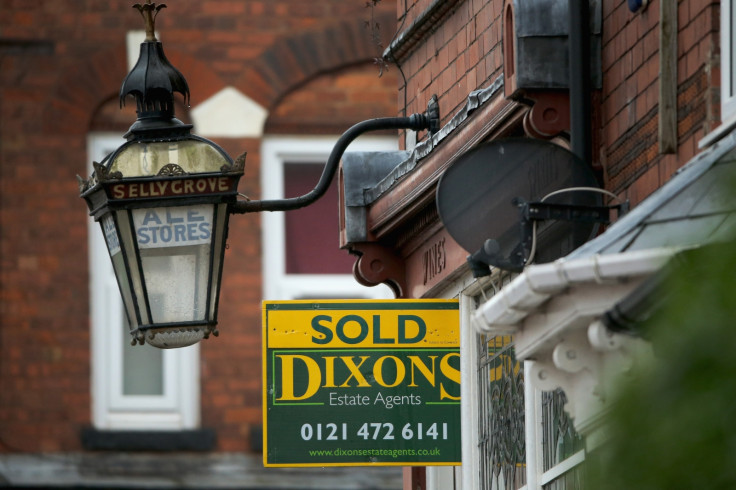Average UK house price hits record high and interest rate rise will 'not be a barrier' for buyers
Halifax figures show average price of a property in the UK rose to a record-high £225,826 in October.

The average price of a house in Britain hit a record-high last month, as a shortage of properties available continued to prop up the housing market and higher interest rates will "not be a barrier" preventing people from purchasing a property.
According to data released by Halifax on Tuesday (7 November), prices grew 0.3% month-on-month in October, beating the forecast for a 0.1% increase. However, the rate of growth more than halved from the 0.8% recorded in the previous month.
Meanwhile, in the three months to October, prices were 4.5% higher than in the corresponding period a year earlier, to £225,826 ($297,042). The rate of growth was in line with forecast but higher than the one recorded in September and represented the fastest rate of growth since February.
"The fact that the supply of new homes and existing properties available for sale remains low, combined with historically low mortgage rates and a high employment rate, continues to support house prices and is likely to do so over the coming months," said Russell Galley, managing director at Halifax Community Bank.
Last week, the Bank of England raised interest rates for the first time in a decade, lifting the benchmark up to 0.5% from 0.25%, a level to which the rate had been lowered in August 2016 in the wake of the Brexit referendum.
"We do not anticipate the base rate rise will be a barrier to buying a house," Galley added, reiterating a point made last week by Nationwide, which said the impact will be contained as a greater number of households are now on fixed mortgages. The share of mortgages on variable rates - those subject to higher payments if interest rates are increased - has fallen to a record low of 40% from a peak of 70% in 2001.
Nationwide chief economist Robert Gardner said the expected 0.25% rate rise would increase monthly payments by £15 to £665 for the average mortgage, meaning households would pay an extra £180 a year.
However, despite the recent rise in house prices, confidence in UK house prices has fallen to its lowest level since December 2012, according to the latest Halifax Housing Market Confidence Tracker. The survey, which tracks consumer sentiment on whether house prices will be higher or lower in a year's time, has dropped from +44 in April to +30 in October, matching the record fall seen following the EU referendum result.
The index has also fallen by 38 points since the peak of +68 in May 2015 around the time of the General Election, with 50% of those surveyed now expect house prices to rise over the next year, the lowest level since April 2013.
Meanwhile, one in five respondents think house prices will fall, the highest point since October 2012 and Halifax expect the squeeze on households' budgets to make itself felt on the housing market.
Last month, Britain's statistical office warned wages continued to lag behind inflation, which hit the highest level since April 2012 last month, as it rose to 3%.
Average weekly earnings rose by 2.2% year-on-year, in line with the gain recorded in the previous month and slightly above the 2.1% figure analysts expected.
"Increasing pressure on household finances and continuing affordability concerns are some of the factors likely to dampen buyer demand," Galley explained.






















